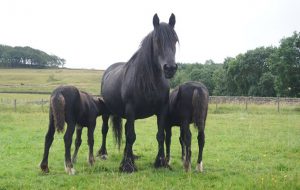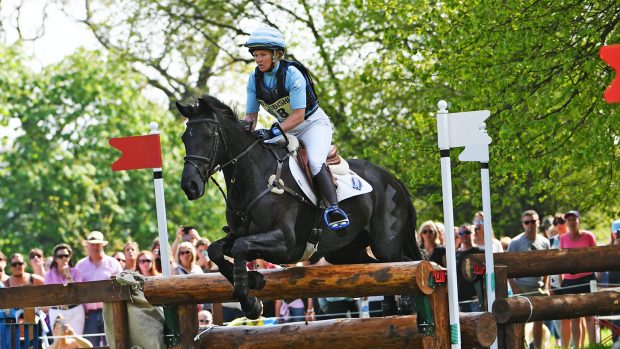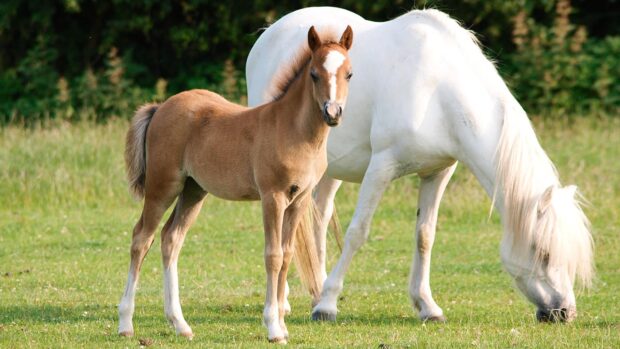A native breed at risk of extinction has been given a welcome boost with the arrival of twin foals in the North Pennines.
Dales pony colts Lowhouses Casper and Lowhouses Jasper were born earlier this year (27 May) at Lowhouses Dales Pony Stud in Mickleton-in-Teesdale.
The birth of two ponies was a surprise, as veterinary scans did not show the foal’s 18-year-old mother, Lowhouses Rebecca, was carrying twins.
“One embryo must have been hiding behind the other,” Freda Longstaff, who owns the stud with her husband Richie, told H&H.
“The smaller foal came out first and my husband said, ‘look at the size of this, there’s got to be another one’ and sure enough there was.
“Within an hour they were both up on their feet.”
The foals are by Tarbarl Gypsy Lad who is also owned by Lowhouses Stud.
“They’re coming on grand, they are such characters,” said Mrs Longstaff, who has been on the Dales Pony Society council for 35 years.
“My husband was born into Dales ponies. They bred them and used them on their farm.
“They kept breeding them during the Second World War when they nearly became extinct.”
| Popular articles |
The couple plan to sell the bigger colt as a riding pony and will keep the smaller one, who they hope will become a driving pony.
Critical condition
Earlier this year (24 January) H&H reported that Dales ponies had been recategorised as “critical” on the Rare Breeds Survival Trust (RBST) watchlist.
Breed enthusiasts said the fall in numbers was not due to dwindling popularity, but because of responsible breeding.
The RBST agreed that due to the financial climate there is little or no market for youngstock, which has had a knock-on effect, reducing the number of pedigree registered foals.
“I think the situation is looking more positive,” added Mrs Longstaff.
“As long as people don’t breed too many and we are selective there’s a future for them.
“They’re excellent all-rounders. They are weight carriers and have very good temperaments.”





